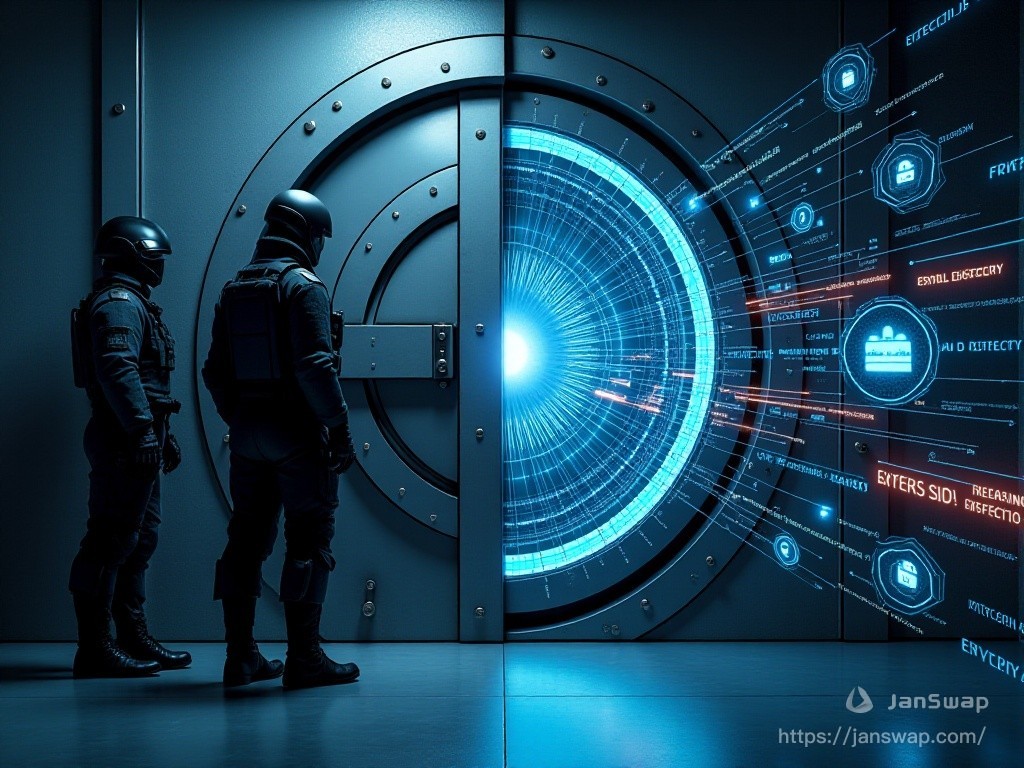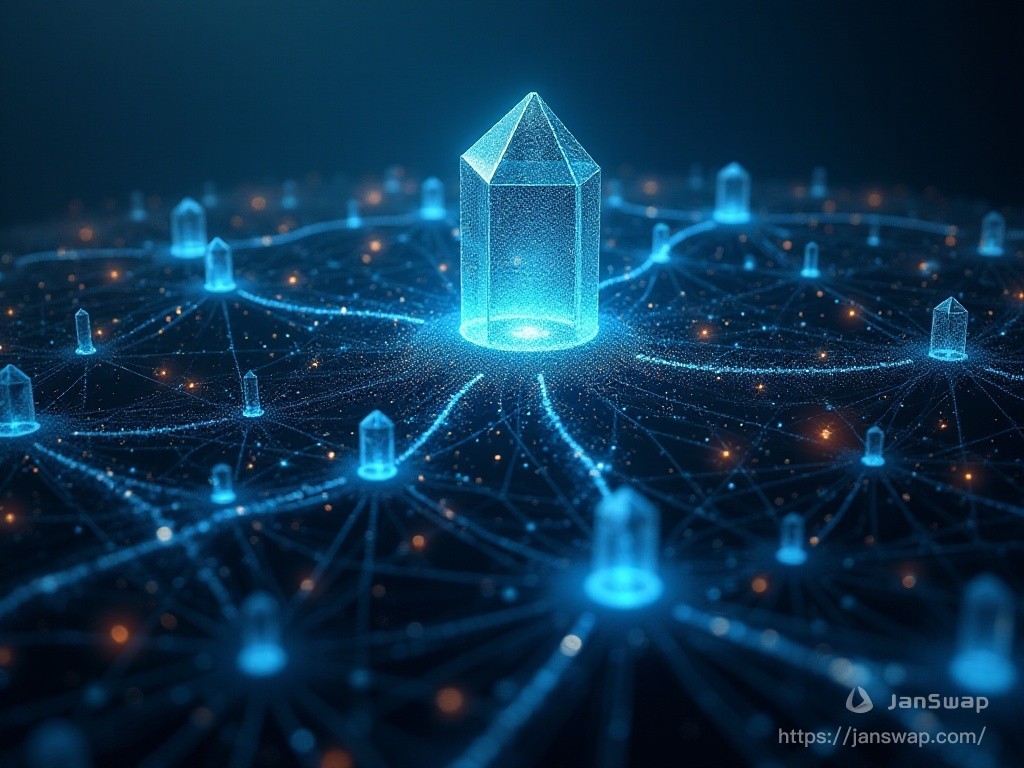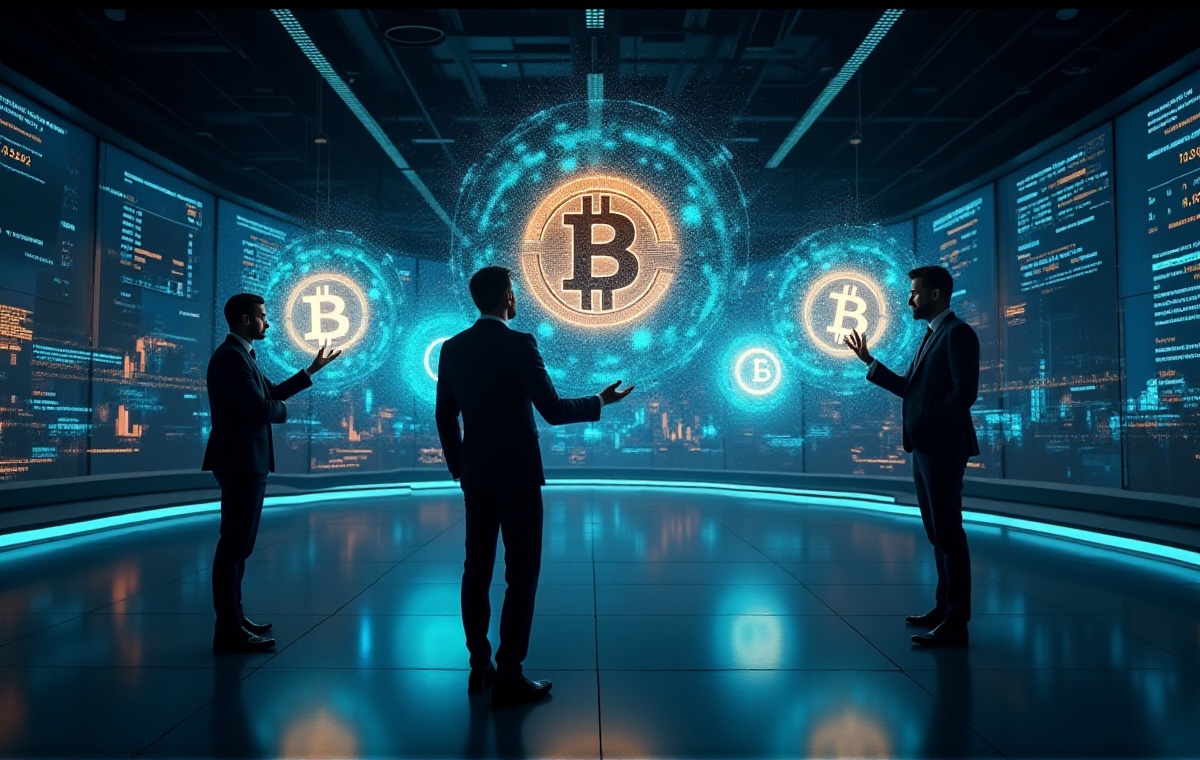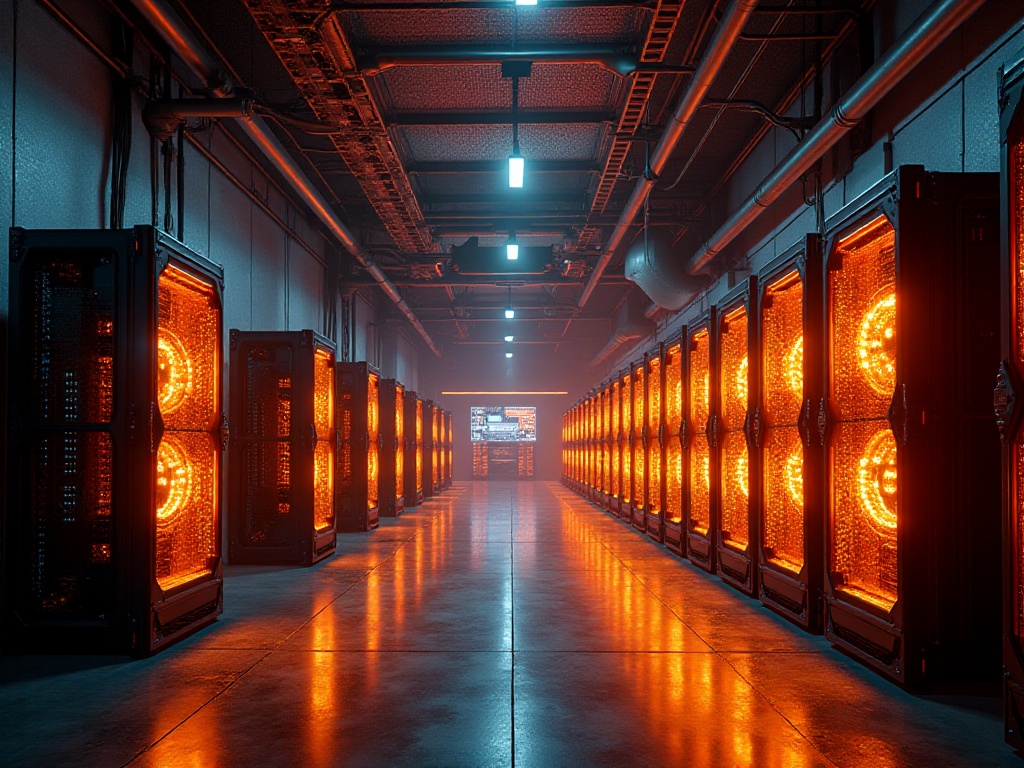

Introduction
As a cryptocurrency investor who has experienced major market ups and downs, I deeply understand the meaning of "one year in crypto feels like ten years in real life." From the crazy bull market surge in 2021 to the painful bear market crash in 2022, this journey has made me realize that in this rapidly changing crypto world, asset security is more important than anything else.
When I first entered the space, like most newcomers, my mind was full of thoughts about seizing opportunities to achieve financial freedom. I didn't think about security issues at all back then, believing that major platforms were trustworthy, until I lost everything and understood how important security awareness is in this decentralized world.
A Painful Lesson
I'll never forget that morning in May 2022. Like any other day, I opened my exchange app to check my account balance, only to find the page loading abnormally. I thought it was just a network issue and didn't pay much attention. By afternoon, when a friend messaged me saying the exchange was having problems, my heart sank.
I had about $100,000 worth of Bitcoin stored on this exchange. I chose this exchange because it had a significant reputation in the industry and considerable daily trading volume. Who could have imagined that such a seemingly reliable platform would disappear overnight? At first, they just announced "temporary maintenance" and suspended withdrawals. But shortly after, the platform's executives vanished, the website became inaccessible, and my assets were gone just like that.
This incident hit me particularly hard, not just because of the financial loss, but more importantly because it made me realize my severe lack of security awareness. I began to understand why experienced users always say "not your keys, not your coins." Since then, I started systematically learning about cryptocurrency security, and now I want to share these lessons and insights with everyone.
Wallet Selection
In the cryptocurrency world, your wallet is your bank. The type of wallet you choose directly determines your asset security level. Through years of exploration, I've found that wallets mainly fall into two categories: hot wallets and cold wallets.
Hot wallets are like the cash we carry around - convenient to use but riskier. These include exchange accounts and mobile wallet apps. Since these wallets are always connected to the internet, they're particularly vulnerable to hacker attacks. According to Chainalysis's report, over 95% of cryptocurrency theft incidents in 2022 were related to hot wallets.
I used to rely heavily on hot wallets, mainly for convenience. But after experiencing the exchange disappearance incident, I realized there needs to be a balance between convenience and security. Now I only keep small amounts for short-term trading in hot wallets, like pocket money.
In comparison, cold wallets are much safer. Their main feature is offline storage, disconnected from the internet, making it impossible for hackers to infiltrate. Hardware wallets are the most typical cold wallets, and according to usage data, users with hardware wallets are 99% less likely to get hacked compared to hot wallet users - a truly remarkable statistic.
Speaking of hardware wallets, I currently use a Ledger. Initially, I thought $100+ was expensive, but considering it protects assets worth tens of thousands of dollars, this investment is really nothing. After using it, I found that operation isn't as complicated as imagined, and the peace of mind is key.
Now I use a combination of hot and cold wallets. Hot wallets contain only small amounts for trading, like cash; most assets are stored in cold wallets, like in a bank safety deposit box. This approach balances convenience with security for larger assets.

Private Key Management
Private keys are perhaps one of the most important concepts in the cryptocurrency world. They're like your bank account password, but much more important. Because while a lost bank password can be reset through the bank, if you lose your private key, your cryptocurrency is truly irretrievable.
The severity of this issue exceeds many people's imagination. According to blockchain analysis company Glassnode's statistics, from Bitcoin's creation until now, about 4 million bitcoins have been permanently locked due to lost private keys. At current prices, that's equivalent to over $100 billion. These Bitcoin owners either forgot their passwords, had hard drive failures, or passed away without telling family members where their private keys were stored.
After deep research and practice, I've developed a system for private key management. First, I split my private key into several parts, using a distributed storage method. Specifically, I use three safes, located at home, office, and bank. Each safe contains a portion of the complete private key, so even if one location has an issue, the asset is safe as long as the other backups remain.
Additionally, I regularly check the status of these backups. Every quarter, I verify that the storage media is intact and the storage environment is appropriate. This might sound paranoid, but in the crypto world, it's better to be paranoid than careless.
It's particularly important to note that when backing up private keys, you must ensure environmental security. Choose private spaces without surveillance cameras, and don't save private key photos on electronic devices. I know some people take photos of their private keys and store them on their phones for convenience, which is extremely dangerous. Phones can be hacked at any time, or photos might accidentally sync to the cloud.

Trading Security
Regarding trading security, the first issue to address is choosing an exchange. After experiencing an exchange disappearance, I'm particularly cautious about selecting exchanges. Now I mainly look at three indicators: the size of the exchange's insurance fund, user numbers and daily trading volume, and security incident history.
Take insurance funds for example - they're like a safety net for exchanges. As of late 2023, Binance's insurance fund reached $1 billion, which is quite convincing. The larger the insurance fund, the stronger the exchange's ability to handle risks.
But choosing a reliable exchange isn't enough; personal security awareness is equally important. I now consistently use two-factor authentication (2FA), requiring a mobile verification code for each login. While this takes extra time, data shows that accounts with 2FA have a 90% lower chance of being hacked compared to regular accounts - a number that proves its importance.
I use Google Authenticator, which works well and is completely free. It might seem troublesome at first, but once you get used to it, you'll find this extra layer of security is really necessary. This sense of security is especially important when making large transactions.
Beyond technical protection, trading habits are also important. I now generally avoid large transactions, and even when necessary, I split them into several smaller ones. I carefully verify addresses before each transaction, and when transferring to a new address for the first time, I always test with a small amount first.

Scam Prevention
In the cryptocurrency world, scam methods are constantly evolving. According to Chainalysis's report, global cryptocurrency scams caused $4 billion in losses in 2022. Behind this number are countless investors' painful lessons.
The most common scam is phishing websites. These sites usually mimic well-known exchanges' interfaces, with identical logos and layouts, but the URLs have subtle differences. Once you enter your account credentials on these phishing sites, your assets are at risk.
Another common scam involves fake customer service representatives. Scammers impersonate exchange customer service staff through various social media, claiming they need to help solve account issues, but actually trying to obtain your private keys or get you to transfer coins to addresses they control.
I remember once receiving a private message from someone claiming to be customer service from a well-known exchange, saying my account had suspicious transactions requiring verification. I almost fell for it, but fortunately remembered that real exchange customer service never initiates contact with users, thus avoiding the scam.
Now I've summarized several principles for preventing scams: First, always carefully check URLs and don't click on suspicious links; Second, don't trust "customer service" that contacts you first; Third, don't easily trust high-return investment projects, especially those requiring quick decisions.

Continuous Learning
In the cryptocurrency field, security isn't a static concept. As hacker attack methods constantly upgrade, our security awareness and measures must also keep pace with the times.
I now regularly follow reports from blockchain security companies like CertiK and SlowMist. These companies periodically release security incident analyses and warnings, which are very helpful for improving security awareness.
According to CertiK's statistics, blockchain security incidents caused over $1 billion in losses in just the first quarter of 2023. These numbers tell us that in the cryptocurrency world, you can never have too much security awareness.
Besides following security reports, I frequently participate in online blockchain security lectures and seminars. These activities not only teach the latest security knowledge but also help meet others who value security, allowing for experience exchange.

Final Thoughts
Looking back on these years' experiences, I deeply feel that in the cryptocurrency world, security isn't a choice but a necessity. Although good security protection requires some time, effort, and money, compared to the pain of asset loss, these investments are really worth it.
My current approach is: large assets must be stored in hardware wallets, private keys need multiple backups, transactions require repeated verification, and any suspicious information needs multiple validations. These habits might seem troublesome at first, but gradually become natural.
Finally, I want to say that in the cryptocurrency world, security is as important as returns. No matter how high the returns, if you ultimately lose due to security issues, it's all meaningless. I hope everyone can learn from my experiences and prioritize security while pursuing returns.
Everyone may encounter different security issues, but if we share experiences and maintain vigilance together, we can minimize risks. After all, in this rapidly developing cryptocurrency world, we need to both seize opportunities and maintain our bottom line.






 Français
Français Deutsch
Deutsch Русский
Русский Português
Português Español
Español Italiano
Italiano Türk
Türk
